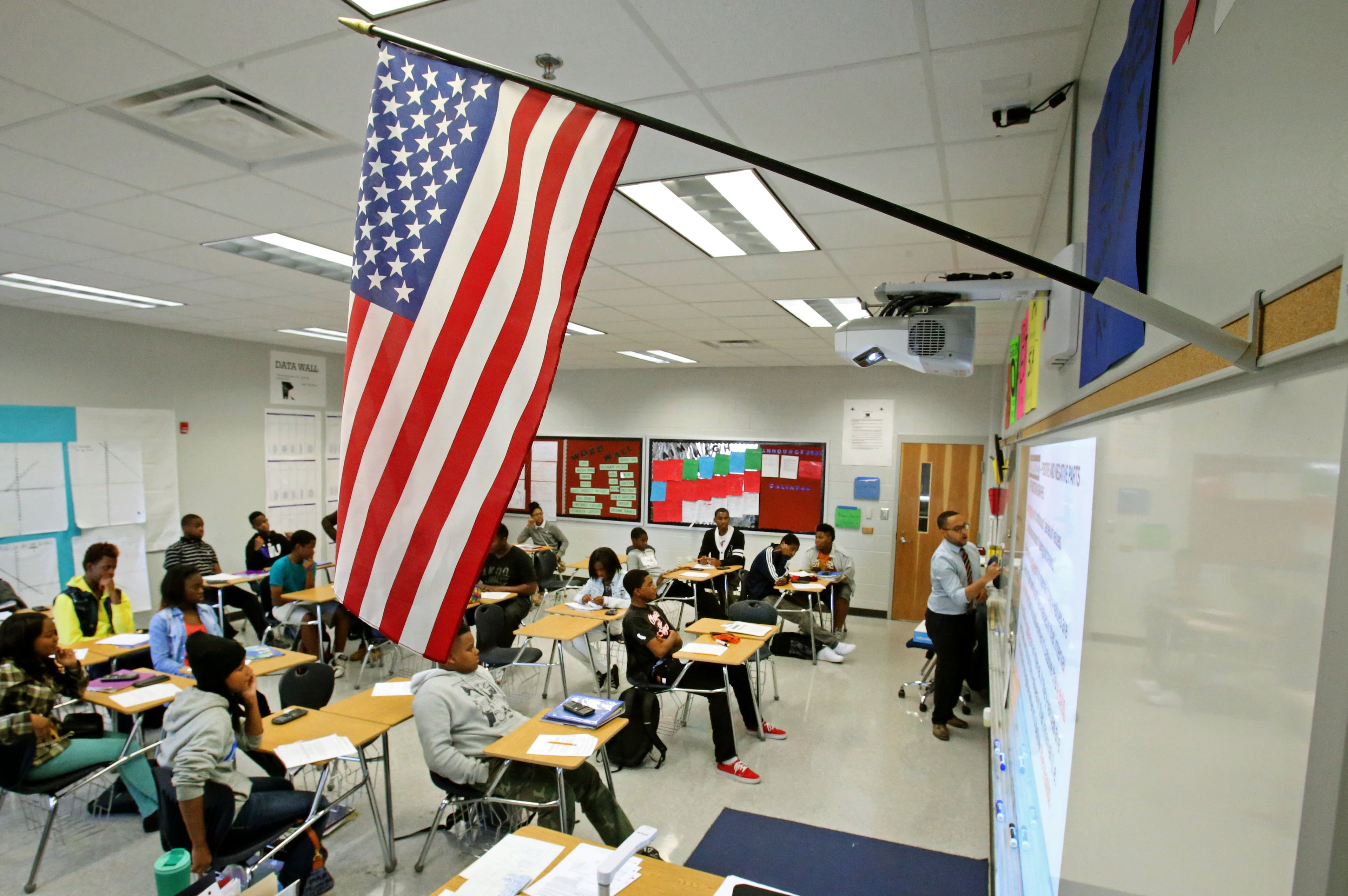Clark Atlanta president: Federal funding key for research and campus projects

Clark Atlanta University leaders on Thursday celebrated the start of construction of its Student Success Center, the first on-campus student building there in 20 years.
The project comes at a pivotal time for Clark Atlanta and other historically Black colleges and universities. While enrollment has increased at many HBCUs in recent years, their administrators and advocates have raised longstanding concerns about a lack of funding to upgrade aging buildings on their campuses.

HBCU administrators and supporters have wondered what kind of financial support the schools will get under the Trump administration. There are 10 HBCUs in Georgia. Clark Atlanta has about 4,000 students, making it the largest private HBCU in the state.
Clark Atlanta president George T. French Jr. talked last week with The Atlanta Journal-Constitution about President Donald Trump’s executive order last month on HBCUs and about the need for federal funding for infrastructure and research grants. Here are some excerpts from the interview. The responses were edited for brevity and clarity.
What were your initial thoughts about (the executive order)?
A: Well, I was excited. The continuity of leadership in the White House has recognized the importance of HBCUs ... We’re working with the state government because the White House Initiative on HBCUs, it encourages states to make additional investments in HBCUs. It encourages the states to match the 1890 Land Grant institution requirements. So, overall, what President Trump does is he encourages federal agencies to participate, but he also encourages the state government, because at the end of the day, we know that what we’re looking at right now under this administration is a return of additional power to the states. So we’re making sure that our relationship with the state is also strong right now.
Is there anything you’re currently working on with the state?
A: Well, CCRT, the Center for Cancer Research and Therapeutic Development (which has been in existence since 1999) ... We’re also working with the city directly on vacating some of the streets around the campus. You remember we had that big event where we had the flooding? It hurt this area disproportionately. So we’re working with the city now to get some of those streets vacated and to work with the state to get some of the infrastructure needs around the campus enhanced.
Anything in particular for those infrastructure needs around the campus?
Well, we would go below the streets. The sewer system is over 100 years old, so we’re having to go below the streets. We are actively planning to build three new buildings, simultaneously. The dining hall, the residence hall and the student success center. In order to do that, we need to go below the streets now to make sure we have sufficient infrastructure, so that is one project the city is working on with us right now.
Back to private partnerships, is there anything in the works?
A: We continue to work with organizations like Google. They made a $5 million unrestricted grant to strengthen infrastructure on campus, so that relationship is still in place. Of course, Apple, that relationship is still in play. The Propel Center, which will be built on campus, we’re having a conversation with them now. We don’t know how some of this conversation will flow over into the private section. We see the private sector kind of being a little conservative. At the end of last year, around October, we were approaching several corporations that were interested in making investments, but right now, they’re kind of waiting just to see how the stock market is going to be, what the monetary system is going to be. So, we are witnessing a little bit of a pause on behalf of the private sector to make investments right now.

There’s been a big need among HBCUs for funding for facilities and to upgrade them. How does the executive order impact that, and would you like to see anything additional regarding that in the order?
A: That’s a good question, and it goes to infrastructure. During COVID, the CARES Act was substantial in building our infrastructure because we know there will be another COVID at some point. And we want to make our infrastructure strong. So with the money we were able to receive from CARES, we were able to build our technology so that if we need to shift again to an online platform, we can shift quickly ... This is really not a domestic conversation. In my opinion, this is a global conversation because we are falling behind. We’re falling behind in technology, and we’re falling behind in innovation, and in order for HBCUs and other higher educational institutions to keep up, we’re going to have to have those infrastructure needs. We’re going to have to have more labs, more technology.
Have you lost any grants or any funding?
A: Yeah, we lost a total of six right now, totaling about $4 million.
Is there a possibility that you may get some or all of that funding back?
A: I don’t think we’ll get all of it back, but I think we’ll get some.
Is there anything in the order or what’s happening in Washington that you think is particularly important?
A: I think this is a real opportunity for the public and private universities to really work in tandem to assist the administration to develop institution priorities. So when I go to the feds to say to them I’ve got a $101 million research budget, but Georgia Tech has a $1.4 billion budget. So I would be crazy not to collaborate with them to talk about how do we best influence policy in Washington and what I’ve seen thus far is the publics and privates coming together to more closely make sure that the president’s priorities and budget more closely align with ours to make the institutional priority of research and technology and innovation remain top of mind.



